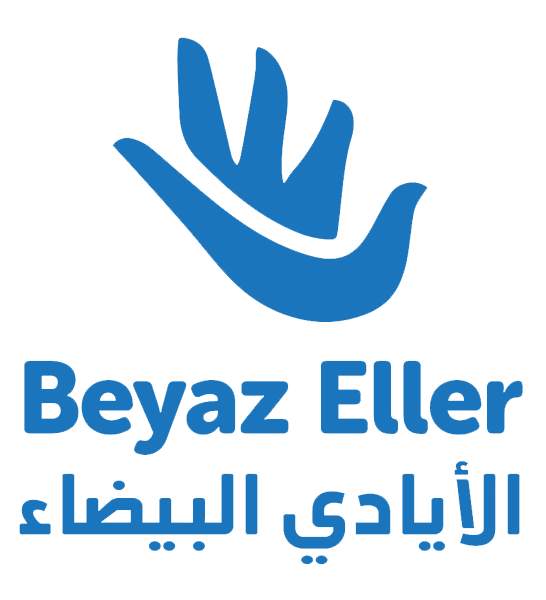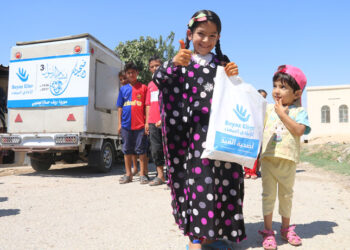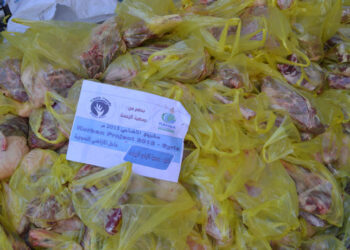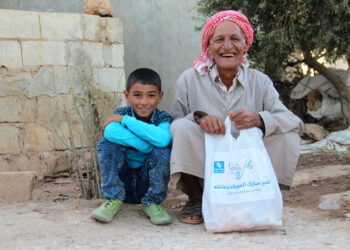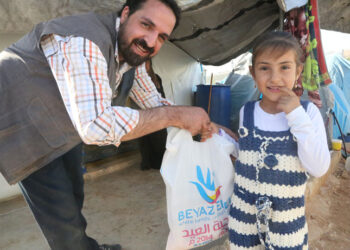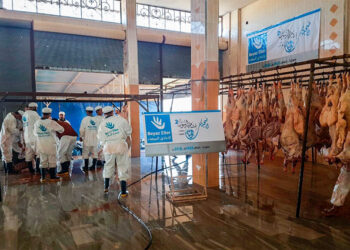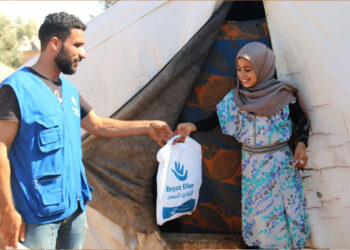If you seek to reach the needy, but distances prevent you?
If you want to deliver your udhiyah (sacrifice) to those who deserve it.
Bayaz Eller Association launches its campaign, “Your Udhiyah in the Prophet’s Sham 8”, seeking to deliver your udhiyah to those who deserve it, so we can help you to draw joy on the faces of the displaced.
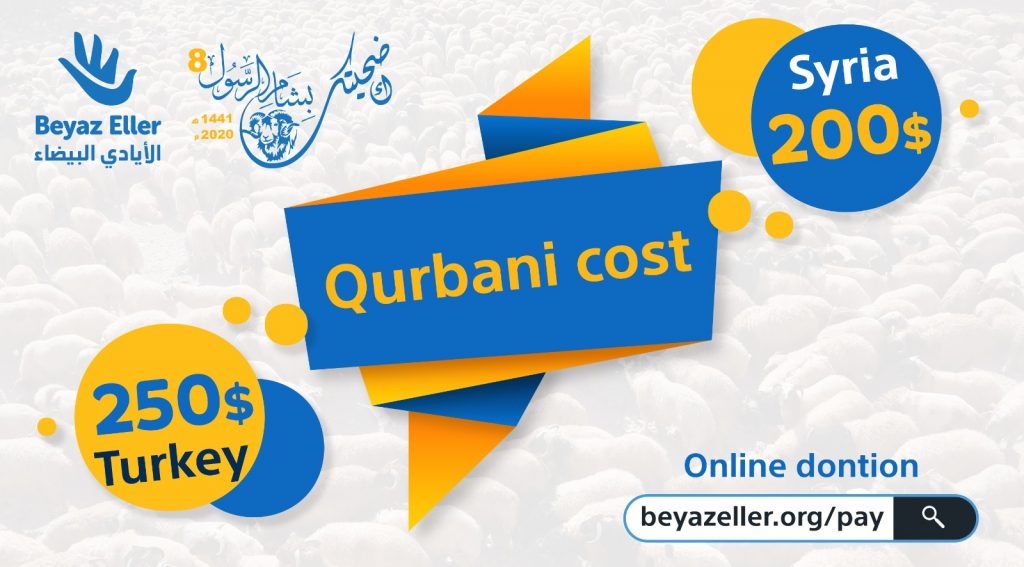
With your support we were able to distribute
Udhiyah
The number of beneficiaries
FAQ
What is meant by udhiyah (sacrifice)?
Udhiyah is an animal slaughtered as a gesture of dovotion to be close to the Almighty God during the days of slaughtering with special conditions.
it is called Eid al-Adha for the udhiyah (sacrifice). İt is called like this because the animal is slaughtered at the time of Duha, which begins after sunrise on the Day of Udhiyah(the tenth of Dhu al-Hijjah).
The slaughtered animals are not considered as sacrifices as in the following cases:
- The animal sacrificed as Aqiqah- an Islamic tradition of slaughtering an animal in the seventh day of having a newborn child as a gesture of thanks to Allah.
- The animal sacrificed as a gift, whether it is desirable for AL-Mufrid haj , or obligatory for AL-mutamateh and Al-qaren haj.
- The animal is saacrificed obligatory for leave a duty or a prohibited action in Hajj or Umrah.
it is a confirmed Sunnah for the rich as narrated by Um Salamah, the wife of prophet Muhammad (peace be upon him) said that the Messenger of Allah said: ‘Whoever wants to offer udhiyah (sacrifice), let him not remove anything from his nails or cut his hair “‘
- The udhiyah must be of camels, cows, sheep, and goats
- The udhiyah should have reached the required age.
- It should be free of any faults. İt must not be one –eyed animal and it must not be crippled, nor emaciated or sick. İt must be owned by the sacrificer, or permissible by Sharia, or by its owner, meaning It is forbidden to sell it. The animal must be healthy and conscious.
- It should be sacrificed at the specified time, which is after the Prayer and khutbah of `Eid – not from when the time for the Prayer and khutbah starts – until before sunset on the last day of tashreeq, which is the 13th day of Dhul-Hijjah. Then the slughtering days are four, which are the Eid day after the prayer and the next three days. So those who slughter the animal befor the prayer ends or after the sunset of the 13th day of Dhul-Hijjah, then, there is no udhiyah for them (i.e., it is not counted as udhiyah (sacrifice))..
İt is preffered to say “. Verily, my Salat, my sacrifice, my living, my dying, is for Allah, the Lord of all that exists, without partner, and with this have I been ordered and I am of the Muslims”. And It was narrated that Jabir bin ‘Abdullah said: “The Messenger of Allah (ﷺ) sacrificed two rams on the Day of ‘Eid. When he turned them to face towards the prayer direction he said: ‘Verily, I have turned my face towards Him Who has created the heavens and the earth, as a monotheist, and I am not of the polytheists. Verily, my prayer, my sacrifice, my living, and my dying are for Allah, the Lord of all that exists. He has no partner. And of this I have been commanded, and I am the first of the Muslims”.
It is desirable “mustahab” after mentioning the name of Allah to say Allahu Akbar three times, and to say prayers and peace upon proghet Muhammad, may God bless him and grant him peace, and to pray for acceptance.
It is desirable “mustahab” for the sacrificer to devide his sacrifice into three equal parts: One part is retained by him, the second is given to the relatives (given as a gift) and the third part is distributed to the poor as the Almighty God says: (Eat from it and feed the poor and the miserables).
It is not permited for the sacrificer to sell the udhiyah (sacrifice), or to sell any part of it, such as the skin. However, Abu Hanifa – may mercy be upon him – authorized the sale of the skin to give the price for Sadaka- an amount of money given to the poor to be close to God- , or to buy what is needed to the home.
The sacrifice may also be transferred from the country in which it was slaughtered to another country; To distribute it to the people there, and it is not permissible to give any of the sacrifice meat for the sacrifice in exchange for his work unless it is for charity, or exchanging for what is useful.
Adha Eid date in 2020
Formally, it is dated by the House of Fatwa on Friday, July 31, in all Arab and Islamic countries through astronomical calculations in each of (Saudi Arabia, Egypt, Lebanon, Jordan, Algeria, Morocco, Kuwait, Oman and other countries where Muslims are the majority of its population. Where the search for the date of Eid al-Adha frequently done to know the date of Eid al-Adha 1441.

